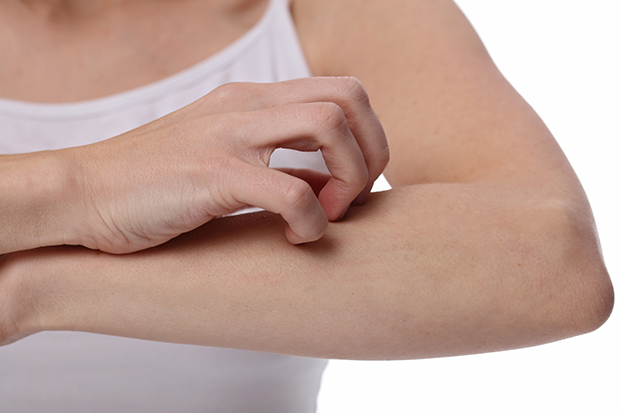
Submitted by Doug Leone, MD and Adrienne Schupbach, MD, Dermatology and Mohs Surgery Institute
Dry skin can affect anyone at any time, but it is usually worse in the winter when cold air outside and heated air inside cause low humidity. Forced-air furnaces make skin even drier. With winter quickly approaching, it’s important to be knowledgeable on the prevention and treatment of dry skin.
Dry skin occurs when the skin loses moisture, primarily from loss of water or the skin’s natural oils. When the skin loses moisture, it can become irritated and inflamed. The symptoms of dry skin are clear. Skin often feels tight, rough, or itchy, has a red appearance, and can flake off or crack. In severe situations, cracked skin can even bleed, which can allow germs to enter into the body.
Dry skin tends to affect both males and females equally. However, those 40 and older are more prone to the condition because skin becomes thinner and drier as you age. Dry skin is typically more common in individuals with a history of eczema, dermatitis, allergies, or asthma. The most common areas for dry skin are your hands, forearms, lower legs, and areas of friction (such as your ankles or soles).
Fortunately, there are a few simple steps that can help combat dry skin.
- Be proactive in keeping skin moist by frequently applying moisturizers or emollients. Contrary to popular belief, these substances do not add moisture to the skin, but they increase the skin’s hydration by reducing evaporation. Creams and ointments tend to be more effective than lotions. Read the labels and look for products that contain lactic acid, urea, dimethicone, glycerin, lanolin, mineral oil, or petrolatum.
- Stay away from skin care products that contain alcohol, scents, dyes, or other chemicals, since these ingredients can further dry out your skin. Be careful of using anti-aging products as they often contain retinoids, which contribute to dryness.
- Do not take long, hot showers or baths as this further depletes your skin of the natural oils that help protect and keep skin moist.
- Avoid harsh scrubbing that can also strip the skin of its natural oils. Use gentle, soap-free cleansers and dry off by lightly patting.
- Apply moisturizer while skin is still damp to trap in moisture.
- Moisture in the environment plays a very important role in the prevention of dry skin. During the cold, dry months, use a humidifier to replenish moisture in the air.
- Drink plenty of water to keep your body’s hydration level high.
- When outside, protect your skin from the wind and cold by wearing a scarf and gloves.
Dry skin can usually be controlled by proper and diligent home care. However, if home care measures do not relieve the itching and dryness, then it’s time to call a dermatologist. It’s important to treat dry skin effectively so that it doesn’t develop into a chronic condition. Very dry skin may require a prescription cream. You also want to be sure that the symptoms are not a sign of a more serious underlying medical condition.
For more information or to schedule an appointment, you may contact the Dermatology and Mohs Surgery Institute at 309-451-DERM (3376) or www.dermatologistbloomington.com. Dr. Leone and Dr. Schupbach, both residents of Bloomington, are board-certified dermatologists, specializing in medical and cosmetic dermatology, including the treatment of skin cancer, moles, acne, rashes, warts, and all skin disorders. Dr. Leone is one of the few Mohs-trained surgeons in the area. Their practice is located at 3024 E. Empire St. 2nd floor (in the Advocate BroMenn outpatient center.

